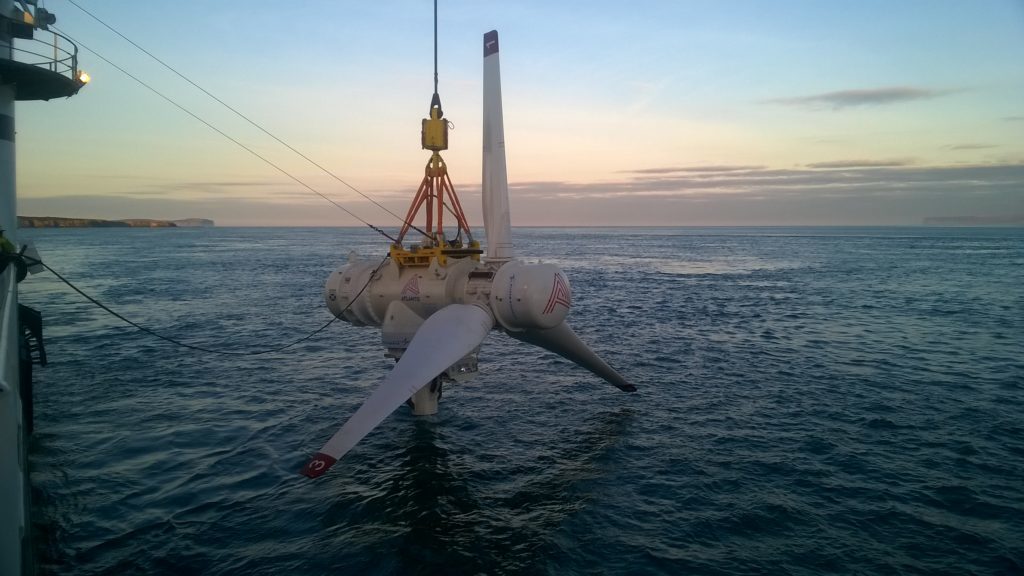
A Scottish project has passed a new milestone for generating “predictable” renewable energy from a tidal array.
The MeyGen development in the Pentland Firth exported more than 13.8 gigawatt hours (GWh) in 2019, which operator Simec Atlantis said was the longest period of uninterrupted generation ever achieved for a multi-megawatt tidal turbine.
Simec said it is the equivalent annual electricity consumption of 3,800 UK homes, generating a revenue of £3.9m.
MeyGen has now exported a total of 24.7GWh to the national grid since August 2017, with Phase 1A having now generated £7.1million in total revenues.
The AR1500 turbine is due to undergo maintenance and will be transported to land at the end of this month, with redeployment targeted for the Spring.
The upgrade is expected to increase revenue by 4%, without adding to the operating cost.
Last year Simec also announced plans to develop the next phase of the array, adding an additional 80MW of tidal capacity with up to 40 new turbines between the island of Stroma and mainland Scotland, as part of the world’s first ocean-powered data centre.
The firm said it has now completed a concept study, with design underway to include a private wire connection to the Celtic Norse subsea cable for the project, which will “significantly enhance” Scotland’s international data connectivity.
Announcing the plans in September, Simec said it hopes to attract a “hyperscale data centre occupier” to Scotland.
Discussions were kept confidential, but gave examples of Amazon, Google and Microsoft as the types of partners in mind.
On the 2019 milestone, chief executive Tim Cornelius said: “I am delighted to report that MeyGen has now exported a remarkable 24.7GWh of predictable renewable energy.
“Not only is this world-renowned project helping the UK meet its Net Zero ambitions, but it is also providing valuable performance data which can be used to inform future projects, demonstrating MeyGen’s importance as a global prototype.
“MeyGen holds a 398MW seabed lease and our data centre expansion project is world leading for a number of reasons. The cost of tidal power continues to reduce and this is being assisted by the sustained pressure the offshore wind market places on the supply chain domestically and abroad.
“The world’s most valuable resource is no longer oil but data, and by combining tidal power with stranded onshore wind farms in close proximity to MeyGen, we can create a virtual power plant to provide sustainable power to a data centre in Scotland, creating important new fibre connections for Scotland and the UK in the process.”

